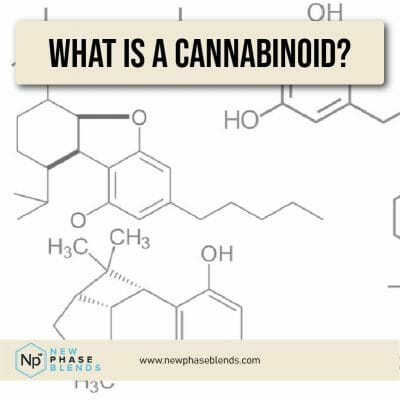People see the cannabinoid known as cannabidiol, or simply ‘CBD’ all over the place today! It is mainly known for the therapeutic effects commonly associated with cannabis products that come without getting high. In short, a cannabinoid is a chemical compound found in the cannabis plant species. It is used by a system inside the human body called the endocannabinoid system (or ECS), which is why some people report such extreme results.
The endocannabinoid system is responsible for producing endogenous cannabinoids within the body to maintain an internal balance of other systems.
Many people claim that taking CBD as a dietary supplement helps with various ailments and conditions such as anxiety disorders, severe pain relief, and much more.
However, it is best to always consult a medical professional before introducing any new dietary supplements into your daily routine. Some products could have adverse effects if taken with other drugs prescribed by your doctor.
A Closer Look at What Cannabinoids Are?
We already know that cannabinoids (major and minor cannabinoids) are one of the chemical compounds found in the cannabis plant. They interact with different receptors (CB1 and CB2) within our body which results in different outcomes, such as pain relief, or anti-inflammatory effects.
The CB1 and CB2 receptors can be stimulated from cannabis extract products such as CBD gummies or even synthetic cannabinoids.
These receptors can also trigger calm and relaxed feelings experienced by many users, as recorded in drug use studies.
Research has found that a cannabis plant produces CBD, along with a host of other cannabinoids and and compounds, like terpenes, present in the plant. The two major cannabinoids are CBD (cannabidiol) and THC (delta 9 tetrahydrocannabinol THC).
In clinical trials, both THC and CBD cannabinoids produce different effects. For example, THC is highly psychoactive, while CBD is not – at all. CBD may have a relaxing effect on some, but is considered a non-psychoactive cannabinoid of the cannabis Sativa plant.
How Does a Cannabinoid Like CBD Work?
Taking CBD mimics the function of the endogenous cannabinoid system by attaching to the cannabinoid receptors we mentioned earlier. These are located all over the body and do a number of different things.
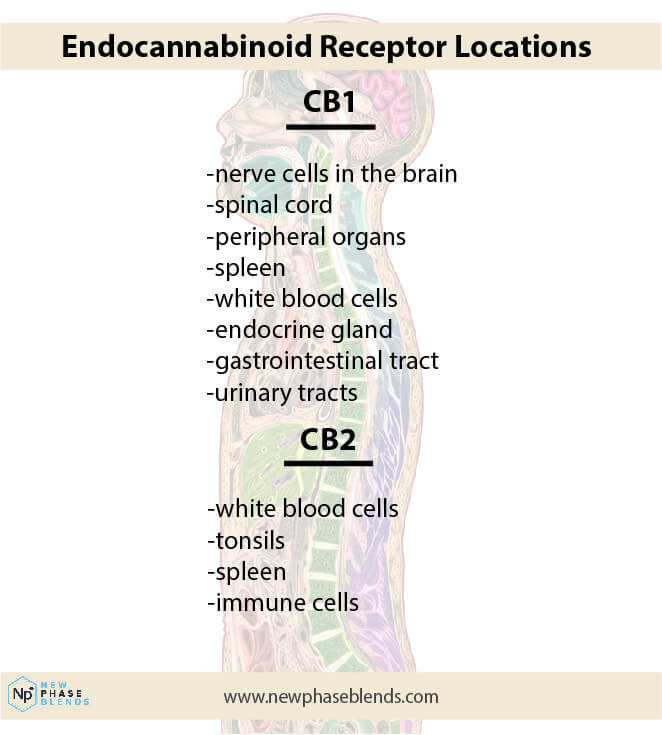
Depending on the cannabinoid profile, they will produce different effects by interacting with a specific cannabinoid receptor type located in different sections of the central nervous system.
Related: What Does CBD Stand For?
This means that cannabinoids may regulate how your body’s cells send and receive messages to deal with things like how the immune system responds to pain perception.
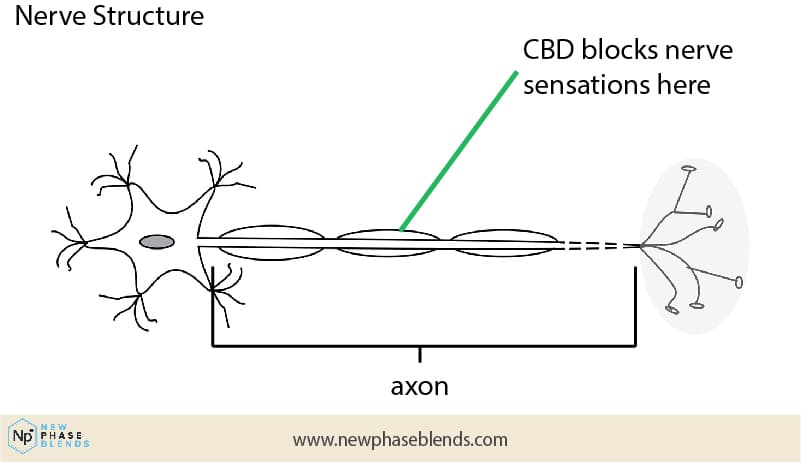
In this illustration, you can see how the cannabinoid CBD triggers certain ‘dulling’ responses within nerves.
Related: Does CBD Work?
Different Types of Cannabinoids
The most common forms of cannabinoids are CBD and THC. These can be derived from several plant species of the cannabis family.
To be specific, the cannabis plant species is made up of industrial hemp AND marijuana. A lot of people do not know this.
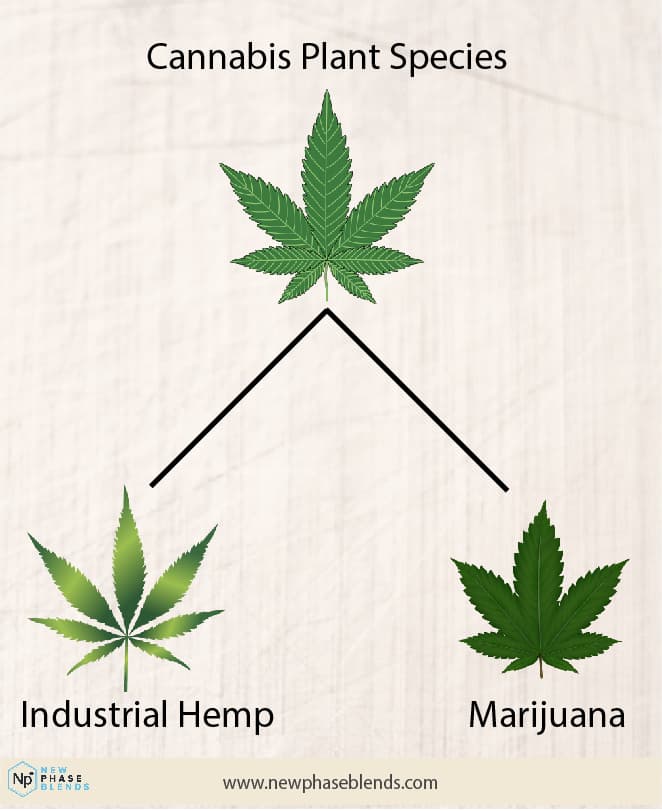
This is why hemp-derived CBD items do not, and cannot, get you high. Hemp, by law, must contain less than 0.3% THC content, while marijuana products have no limit on the THC they can possess. This is also why marijuana is a controlled substance.
Here are some other cannabinoids that people are less familiar with:
- CBG – Cannabigerol
- CBN – Cannabinol
- CBL – Cannabicyclol
- CBC – Cannabichromene
There actually around 124 different known cannabinoids, and it seems like we learn just a little bit more about them almost every day.
Related: Comparing CBD and CBN
How are Cannabinoids Used?
Natural and synthetic cannabinoids are typically smoked or ingested. These products come in the form of tinctures, oils, vapes, and gummies.
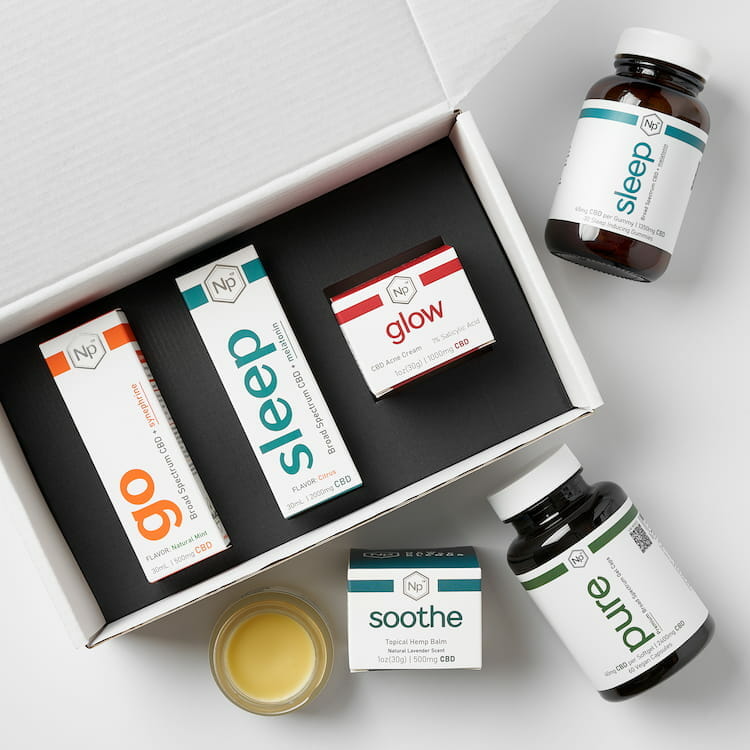
Pharmaceutical or medicinal cannabinoids, like medical marijuana items, are available in raw forms that can be vaped or smoked for medicinal purposes.
There are even some high-quality products that can be applied directly to the skin, for example, chronic pain and inflammation, including lotions, balms, and skincare products. Please talk to your doctor before taking CBD products.
Psychoactive and Therapeutic Effects of Cannabinoids
The effects of cannabis use may be felt in varying degrees by different users. Some may feel the effects right away, as some cannabinoids (like THC) bind strongly with cannabinoid receptors in the body.
Research suggests that taking CBD has higher adverse events with a significant improvement in their condition. While in the same study, the placebo groups noticed lower events.
Most users will feel the effects of taking CBD products immediately if inhaled or after an hour or so if consumed. The general effects of taking CBD may include:
- Euphoric feeling
- The feeling of peace and well being
- Spontaneous laughter and excitement
- Increased appetite
- A quiet and reflective disposition
- Dry mouth
As with many other substances, the more you take, the more profound effects can be – up to a certain point. Only use as much as you need to feel an effect.
What are Synthetic Cannabinoids?
In the past few years, many synthetic cannabinoid products have been made available to the public. Synthetic cannabinoids are basically a molecular copy of cannabinoids that are made in a laboratory, by humans.

Sounds crazy, doesn’t it?
Although they are very similar to natural CBD products, the synthetic versions are far more potent. They carry with them several adverse effects. Due to the continued development of these products, they are no longer classified under traditional cannabinoids.
Cannabinoids and Other Drugs
Drug abuse is a serious problem. Mixing cannabinoids with other drugs, alcohol, and prescription medications can often create unpredictable results.
Consuming alcohol and cannabis together may create unpleasant effects. You may develop an increased risk of experiencing symptoms like nausea, vomiting, anxiety, and paranoia.
It is best to speak to a doctor before taking CBD. Whether your desire to take CBD is to assist with severe forms of depression or in conjunction with the strict guidelines of cancer chemotherapy, sound medical advice is always recommended.
Are Cannabinoids Legal?
Cannabinoids derived from the marijuana plant are only legal in the states where cannabis is considered legal for medical or recreational use. It is legal to have CBD oil derived from hemp in the US, as long as the THC content is 0.3% or less.
Related: Is CBD Legal in Texas?
A Final Word on Cannabinoids
The complex system of CBD and how it works with the human body has a long road of research ahead of it. However, much has already been done to understand how CBD works with endogenous cannabinoids, the central nervous system, and how a person deals with conditions like chronic pain or anxiety.

The folks at New Phase Blends have all of the answers to your CBD and cannabinoid questions. Our line of CBD products is third-party lab tested and is made from only the highest-quality CBD. We don’t use any unhealthy artificial ingredients or colors in any of our products.
Talk to us today so you can begin to enjoy the benefits our CBD has to offer!



